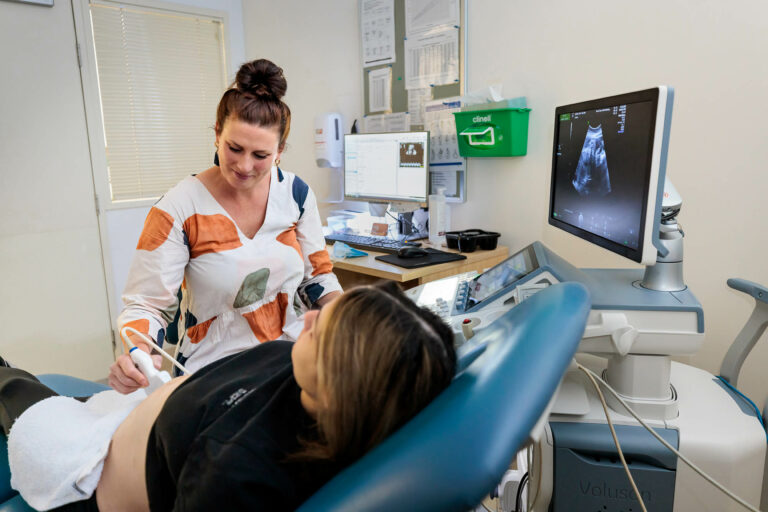The 2024-2026 Norman Beischer Clinical Research Fellowship has been awarded to Dr Teresa MacDonald to tackle preventable stillbirth. Most stillbirths happen because the baby’s life support system – the placenta – functions poorly. With the Fellowship’s $600,000 funding, Teresa will develop 3 ‘Checkpoints of Placental Health’ across pregnancy to better identify babies at risk, so they can be closely monitored, and delivered before disaster strikes.
Stillbirth is a global human tragedy, claiming 2 million lives each year. In Australia, 1 in 130 babies are stillborn – a figure that has remained static for decades. When a placenta functions poorly, it fails to deliver the nutrients and oxygen required for healthy fetal growth. Most stillbirths occur late in pregnancy, when – if the baby was known to be at higher risk – it could be monitored and delivered. And saved. The challenge is that we detect less than 30% of at-risk babies. We fail to reduce stillbirth because we lack tools to identify the failing placenta, and the small baby.
Teresa’s vision is to develop 3 new ‘Checkpoints of Placental Health’ and to deliver them as clinical tools ready to be used in the antenatal clinic to better care for every pregnancy. Importantly, the checkpoints use samples or data already collected in most pregnancies. Thus, they could be rapidly incorporated. They include: (i) using measurements already taken at the routine 20-week mid-pregnancy morphology ultrasound scan to triage pregnancy care; (ii) evaluation of the fetal growth rate between scans (rather than just fetal size) at the time of any growth scan in pregnancy; and (iii) a maternal blood test of placental health in late pregnancy – at a time where most women have their blood already sampled to check their blood count.
If even one of these ‘Checkpoints of Placental Health’ improves detection of the fetus at risk, this would substantially reduce stillbirth.
Dr Teresa MacDonald is an Obstetrician and Gynaecologist at Mercy Hospital for Women, and can imagine her work being applied on a daily basis. “In absolutely every antenatal clinic we endeavour to identify babies at risk, and make recommendations about timing of birth. It can be tough balancing the desire to continue a pregnancy and await spontaneous labour against increasing stillbirth risk as gestation advances. I am so thrilled that with the Foundation’s support, I will be able to develop tools to aid this decision making in an evidence-based way.”
Teresa’s fellowship comes on the back of a strong background in research to better detect placental dysfunction and stillbirth risk. This was the focus of her PhD, which was awarded in 2019 and attracted the Norman Beischer PhD Prize, and The University of Melbourne’s Arthur Nyulasy Prize for the most outstanding PhD in obstetrics and gynaecology. Teresa’s research profile and program have also attracted an NHMRC Emerging Leader Investigator Grant.
Along with her research and clinical pursuits, Teresa continues to contribute heavily to obstetric education. She has co-authored an online course in point of care third trimester ultrasound, and is a director of the written examination for the Royal Australian College of Obstetricians and Gynaecologists. Teresa’s overarching aim is to translate her research findings into usable clinical tools, to use her profile as obstetrician, researcher and educator to communicate this work effectively, and thus to save lives.

Please use our account details below to make your contribution.
Account Name: Norman Beischer Medical Research Foundation
Bank: Bendigo
BSB: 633000
Account No: 5529128
Once the donation has been made please use the form below to let us know the details.